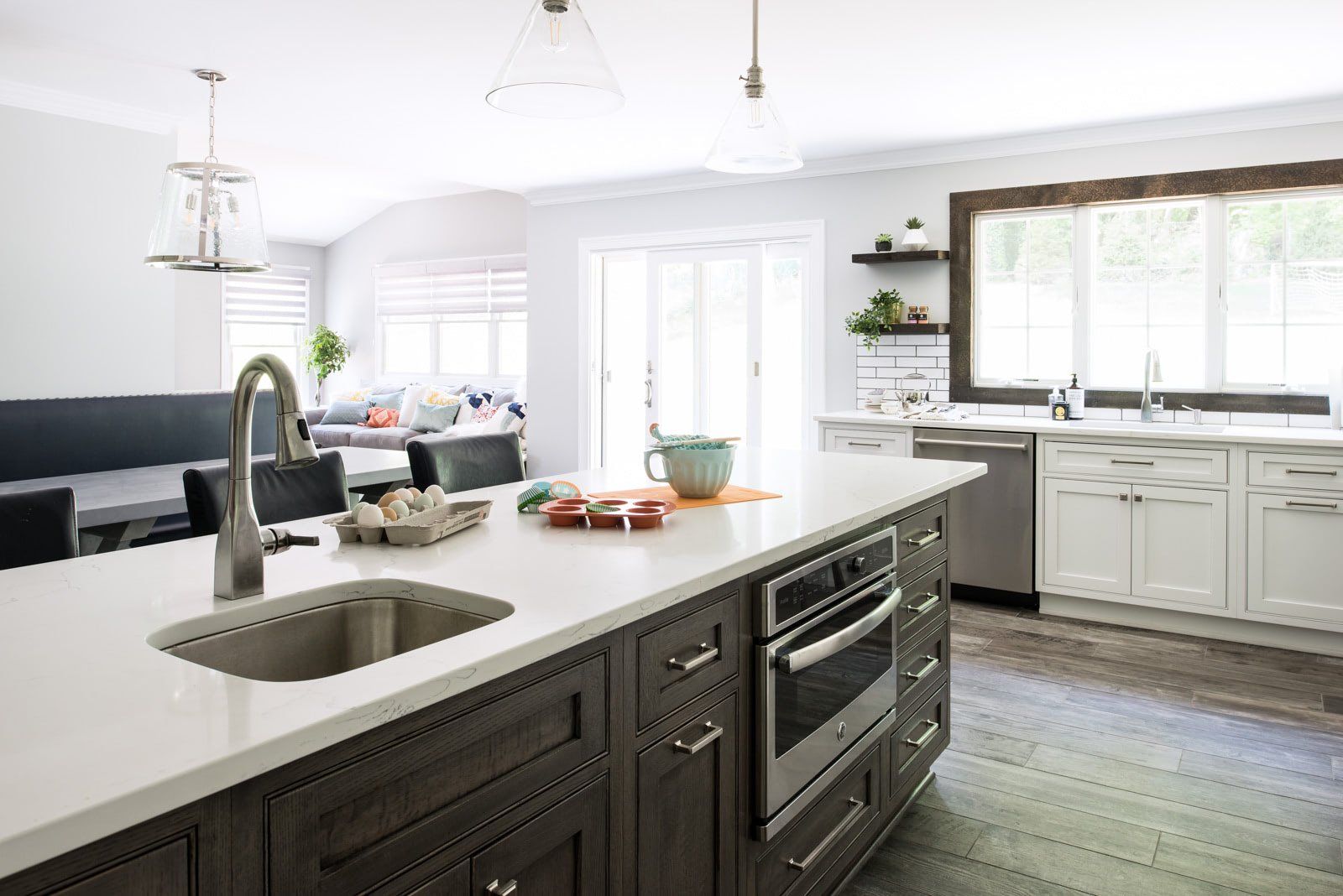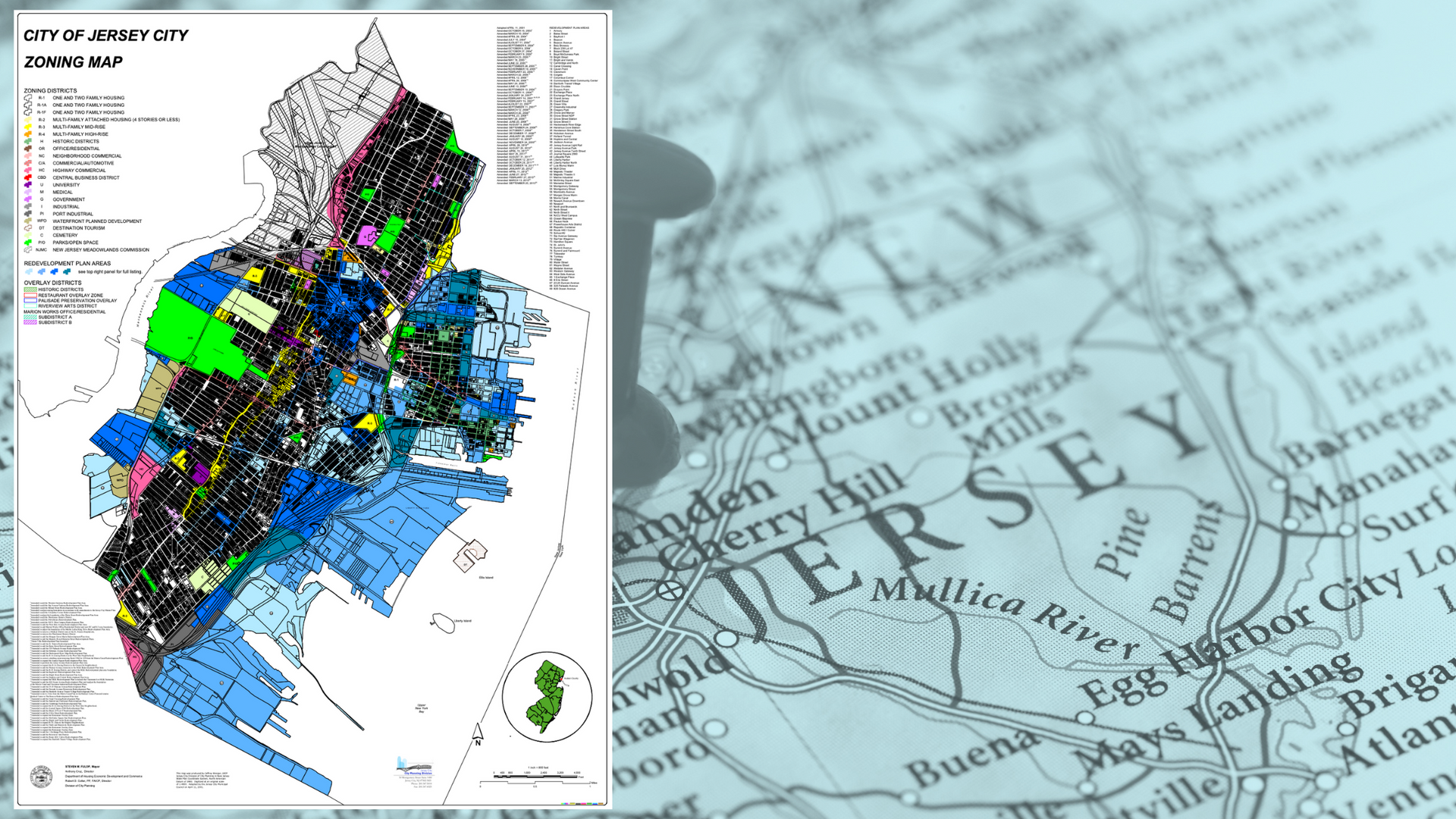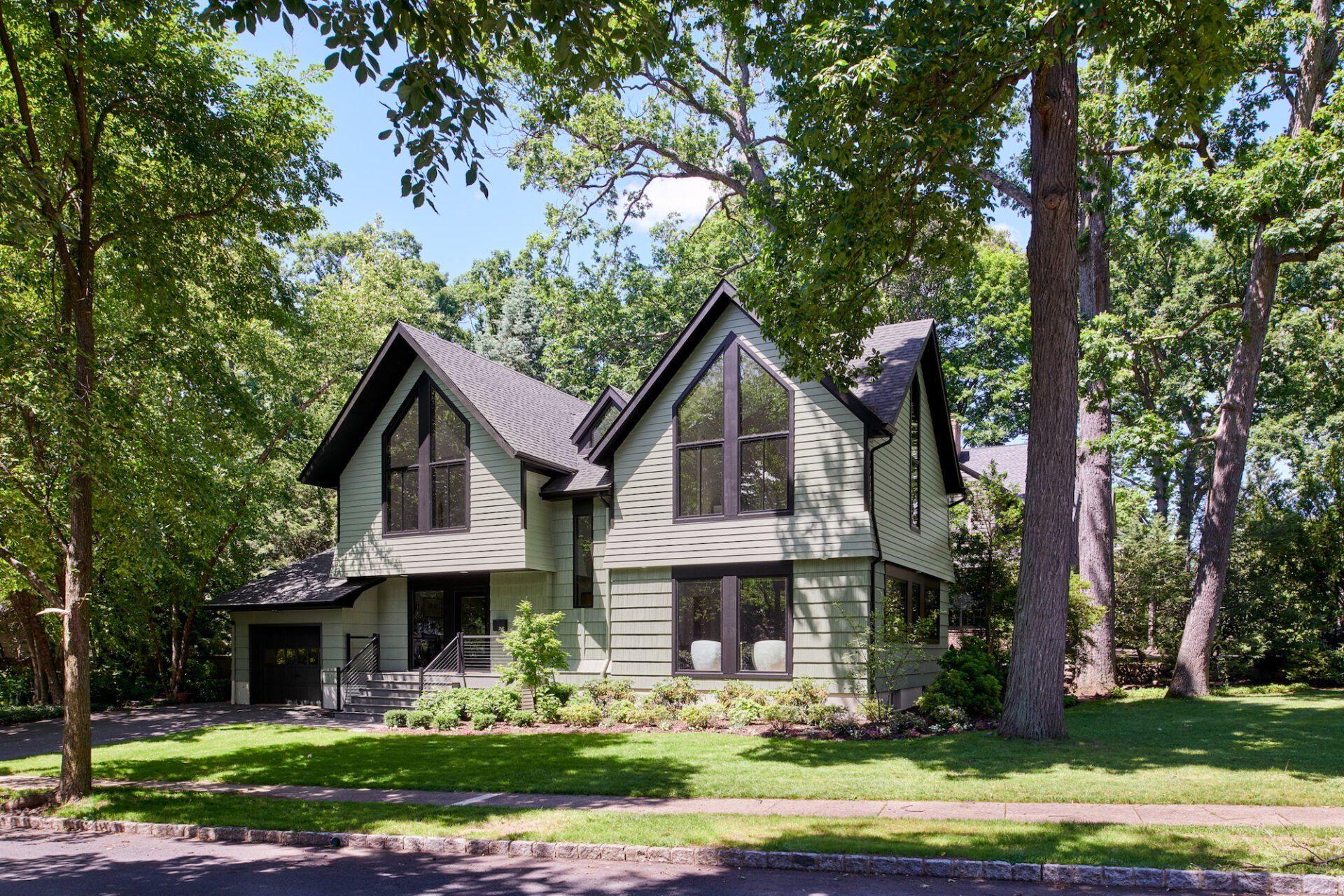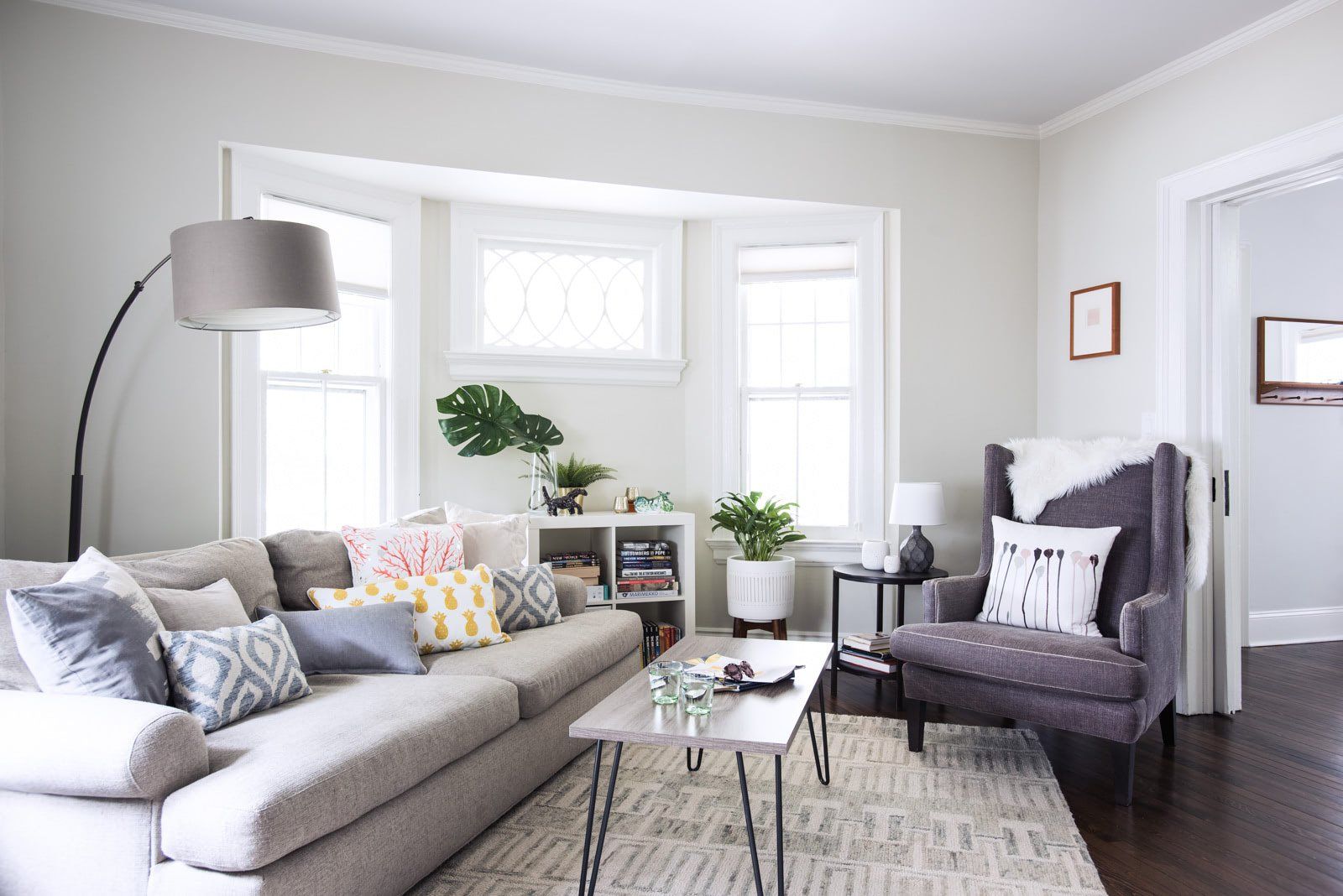Before you can start building or remodeling a residential property in New Jersey, you’ll need to make sure your design meets municipal zoning regulations.
While your architect will help you navigate through New Jersey zoning codes as the homeowner, it’s helpful to know a bit about them.
Why? Because ordinances will dictate a lot about what you can and cannot build. It’s helpful to know why they are developed and how they might impact your proposed development sooner rather than later.
In this blog, you can expect to learn:
- All about municipal zoning regulations and their purpose
- How zoning regulations can impact your residential project
- How to ensure your project is compliant with zoning regulations
- Recent zoning changes in Montclair for residential buildings
- How Sweebe Architecture approaches the zoning approval process
What Are Municipal Zoning Regulations and What Purpose Do They Serve?
Zoning regulations are important laws that govern land use in New Jersey.
Unlike the codes that govern a construction permit (which you can read about here), zoning regulations determine everything from who can live on a property to what type of residential buildings can be built.
Zoning laws also play a role in the development and remodeling process. For example, they may need to be considered when:
- Altering the height or width of a property
- Modifying the exterior of a building
- Building multifamily units or office space
- Adding additional buildings
- Building a carport
- Adjusting yard setback
What is the Point of Zoning Regulations?
There are a variety of reasons for zoning regulations — most of which can be linked to logic from many decades ago.
According to Raphael Fischler, author of ‘Zoning, A Guide for 21st-Century Planning,’ there are 6 main reasons for the introduction of zoning regulations:
- Protecting landowners from
danger and nuisances — to ensure healthier living in designated areas e.g., zoning regulations might specify that factories need to be kept on the outskirts of a town
- Preserving
identity — to ensure enough distance between properties
- Protecting
property value — to help preserve the value of real estate e.g., in the face of new development or to protect the tax base of municipalities
- Maintaining
beauty — to make sure planning decisions serve a whole municipality, not just individuals
- Protecting
nature — to combat the density of urban areas e.g., adding greenspace to suburban areas
- Delegating power — to give municipal authorities more power over their own locality
While several of these pillars are still relevant today, changes to society have made other reasons outdated and, frankly, frustrating for homeowners and developers.
For example, the impact of having residential properties situated close to factories is now more commonly associated with the "visual eyesore" aspect of the industry, rather than health concerns.
We don’t feel that the zoning regulations always champion the needs of our modern society. Changes are being made to the zoning laws, but too slowly.
How Can Zoning Regulations Impact My New Jersey Build or Remodel?

If you are an applicant looking to meet zoning requirements for a single-family home, the good news is that you will probably have an easier time than a commercial property developer.
That said, just how straightforward the process is can depend on:
- Local law (specific to certain zoning districts or your municipality)
- Your specific neighborhood
- Your proposed or existing property line/boundaries
- The number and type of properties adjacent to yours (or even close by!)
- Your appointed zoning officer or governing body
- The type of property you want to build (this will include everything from building height to proposed use)
The ease with which your case is dealt with can also depend on its presentation. Especially when your application is heard in front of your local zoning board of adjustment — it’s essential for your application to be fully complete (and organized!) to avoid wasting anyone’s time.
Sweebe Definition: The Board of Adjustment is a group of citizens appointed by a local governing body to handle public hearings and hold power over granting variances.
The Impact of New Jersey Zoning Codes on Family Homes
Zoning regulations in New Jersey can significantly impact how you want to use your home. Here are just some examples of the potential impacts:
- In Montclair, NJ, single-family homes are usually restricted to two and a half stories, which could limit future property changes and development options.
- Expanding or constructing new builds on New Jersey residential properties can be limited based on property line setback requirements. This can affect your ability as a homeowner to expand your living space.
- New Jersey zoning laws may prevent certain individuals from residing on a property defined as a single-family residence, including family members residing in accessory structures.
In order to fully understand how the zoning ordinance will impact your specific project, you will need to talk to an architect about your needs and context of your property.
Are Zoning Laws Hard to Follow?
Contrary to how it can feel, zoning ordinances aren’t in place to trip you up intentionally or make your life difficult. However, due to reliance, resolution, and precedent set on historic situations that may be moot as applicable to current-day situations — they can cause issues if you’re not prepared.
That said, once you know why you want to build or remodel a residential property, zoning approval will largely depend on how much others view your project as a “nuisance.”
Should local interest groups and residents take issue with your build, you’ll need to be prepared to argue your case. Not confident in this area? Our advice is to appoint a representative, like an architect, who is!
As well as being able to explain the services being rendered on your plot and the full scope of your building project, you might be required to argue details such as the physical bulk of your building and how you intend to use the building.
From being able to pin down the exact square footage to knowing whether site grading will be required — knowing your project inside-and-out will be an essential part of defending it, should you find yourself at the Board of Adjustment hearing.
Tips For Anticipating Potential Zoning Challenges
In many cases, red flags associated with zoning can be easily identified by project owners with the right level of research.
This research can include:
- Communicating with your local township authorities before making assumptions about zoning for your particular property
- Speaking to property owners in the area to uncover any potential risk factors (or nay-sayers)
- Keep up to date with local zoning law changes, amendments, or new resolutions.
- Being clear from the start about the intended purpose of your build or remodel
Note: Remember that zoning approvals will also incur fees, so be sure to ask your local planning department for more information on these fees before proceeding and pay on time to avoid additional delays in your application.
The Role of an Architect in the Zoning Application Process
In order for your zoning application to tick all the boxes and be lawfully permitted, you should have a reliable architect on hand as early as possible to help manage any changes that need to be made to your application.
Well-versed in dealing with municipal officials and community interest groups, a good architect can make amendments as needed to satisfy most aspects of your build.
The great thing about hiring a local New Jersey architect is that we will be able to find solutions to local challenges and already know the local area.
How Can I Ensure My Project Is Compliant With Zoning Regulations?

In New Jersey, a good first step is to investigate your local zoning districts and land use ordinance maps. While a reputable architecture firm in your area will already be well-versed in local zoning, it’s always good to be familiar with this type of research as a project owner.
It’s also important to remember that zoning regulations vary from town to town, and even from block to block. Never assume that one set of town laws also applies to your area — do your research within your locality, even if it means having to contact your town planners directly.
Our main advice is to always be fully transparent about your build with your architect and construction team.
The only thing worse than not achieving zoning approval is gaining approval and then having to make costly changes later because you weren’t clear on what the project was intended to be. If you are clear from the start with your architect about the type of home you want to build, they will be better able to follow the law and make this happen.
Our second bit of advice is to never try to do work without getting the right approvals first.
If you decide to make changes to your property without first obtaining approval, be aware that penalties can be involved. For example, if you build without a permit, and it’s later found that the structure did not comply with local building codes, you could face heavy fines and penalties.
Recent Zoning Changes in Montclair for Residential Buildings

Especially relevant for current New Jersey homeowners looking to renovate or expand their homes, it is always good to check if zoning laws have changed since the last time you looked into renovating your home.
For example, a recent amendment to the Montclair zoning ordinance centers around the permitted use of an ‘accessory building’ on a single-family property, for use as a dwelling unit.
Before this amendment, a single-family property could only have ONE family occupying the property. This meant that only detached garages, pool houses, sheds, art studios, etc. could be built, and no one was allowed to sleep or cook there.
Tip: While zoning amendments can sometimes be welcome news for homeowners, other amendments can create problems. This is why reviewing the most recent information available before moving forward with your project is crucial.
Streamline Your Zoning Approval With the Help of Sweebe Architecture
Zoning regulations are essential for ensuring that your remodel, renovation, or new build is compliant with town laws. In this blog post, we have covered the basics of New Jersey zoning regulations and how to be more prepared for your application.
At Sweebe Architecture, we can help support the zoning approval process by handling the necessary paperwork associated with relevant permits and representing our clients in front of zoning boards and other governing bodies.
We also provide guidance on how to leverage zoning regulations to optimize project outcomes and achieve your design goals. With Sweebe Architecture, you can trust that your project will be in good hands from start to finish!
With an extensive portfolio of residential properties and a process that involves getting to the root of your design needs, we’re perfectly positioned to make your dream residential home a reality. Specializing in major home renovations and residential builds in the New Jersey area, we design homes that bring your family closer together.
To see what we can do for you, feel free to reach out to our team. As a full-service architecture and interior design firm in New Jersey, we have every aspect of your build under control. Contact us today to schedule a Discovery Call!
Website design by Archmark


